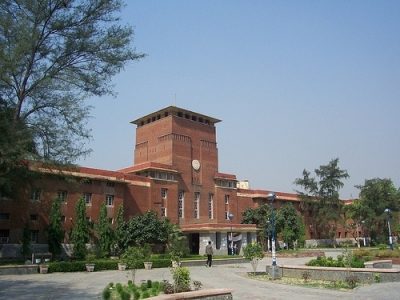The Delhi High Court, on Tuesday, not only refused to allow two successful Delhi University aspirants to mutually reverse their chosen course and seats but also questioned the authorities to address their grievance as a “one-off case”.
In his judgment, Justice Vibhu Bakhru also dismissed their claim that this year’s Common Seat Allocation System (CSAS) was unconstitutional and commented that the change of seats, as sought by the petitioners, is not permissible in terms of allocation system.
Advertisement
“This Court finds no ground to interfere with the CSAS, and has already held that the petitioners have no right to seek the relief as sought; considering that no prejudice would have been caused to any of the students, this Court considers it apposite to direct the respondents (Delhi University and St Stephen’s College) to consider this as a one-off case,” read the court order.
Advertisement
The court also underlined that the petitioners’ challenge to CSAS was insubstantial and there was no credible reason to call it arbitrary, unreasonable and fell foul of Article 14 (Equality before law) or Article 21 (Protection of life and personal liberty) of the Constitution of India.
The petitioners, who performed well in the Common University Entrance Test, reached the court after realising their “first preference” at the time of accepting admission was incorrect and strived to change it but the authorities refused to permit any change.
Meanwhile, the DU authority said, as per the applicable policy, it was not acceptable for a candidate to change the seat after he has secured admission in the course and college of his “first preference”.
The court contemplated that the fundamental premise on which the petition was based – that is a candidate was allowed to participate in the further rounds for allotment of seats after securing admission in a course and college of “first preference”– is opposed to the CSAS.
The court interpreted that if the requests of the petitioners are entertained, it would not form a precedent.
Advertisement











